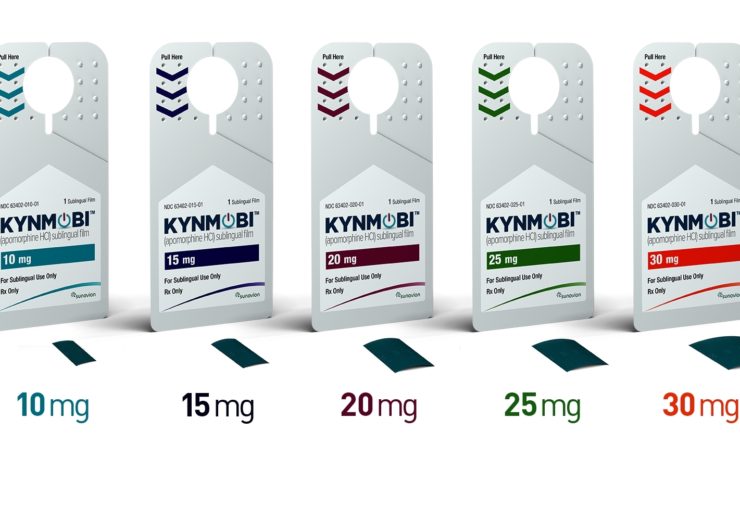Kynmobi demonstrated improvement in motor symptoms for patients with PD compared to placebo in Phase 3 clinical trial

KYNMOBI™ (apomorphine HCI) packaging and films by dose. (Credit: Business Wire)
Sunovion Pharmaceuticals has received the Health Canada approval for Kynmobi (apomorphine HCI) soluble film to treat acute, intermittent OFF episodes in Parkinson’s disease (PD) patients.
OFF episodes are the re-appearance or worsening of PD symptoms otherwise controlled with oral levodopa or carbidopa, partly characterised by tremor, stiffness, slowed movement or other symptoms.
Sunovion said that the US Food and Drug Administration (FDA) has previously granted approval for Kynmobi on 21 May 2020.
Sunovion president and chief executive officer Antony Loebel said: “OFF episodes disrupt the daily lives of people living with Parkinson’s disease as well as their care partners and can make simple tasks like getting ready in the morning or buttoning a shirt extremely difficult.
“The Health Canada approval of Kynmobi provides healthcare providers and people living with Parkinson’s disease with a novel treatment option that allows a quick and reliable transition from OFF to ON so they can more easily function in their daily lives.”
Kynmobi soluble film is an advanced formulation of a dopamine agonist apomorphine
PD is a chronic neurodegenerative disease and the OFF episodes associated with the disease may occur anytime throughout the day, like in the morning, upon waking, around timed medication doses.
Kynmobi soluble film is an advanced formulation of apomorphine, a dopamine agonist, which marks the first and only available sublingual therapy for the treatment of OFF episodes associated with PD.
Results from Phase 3 clinical trial showed that Kynmobi improved motor symptoms for patients with PD at 30 minutes after dosing at week 12, compared to placebo, on the Movement Disorder Society Unified Parkinson’s Disease Rating Scale (MDS-UPDRS) Part III score.
In the clinical trial, Kynmobi was generally well-tolerated, and most frequently reported treatment-emergent adverse events include nausea, oropharyngeal reactions, somnolence and dizziness.
Parkinson Canada CEO Karen Lee said: “As the disease progresses patients with Parkinson’s are faced with challenging and disruptive OFF episodes that come with impaired mobility.
“Today’s Health Canada approval is an important step forward for people living with Parkinson’s disease, as they now have more options that can help manage the effects of OFF episodes as they occur.”
